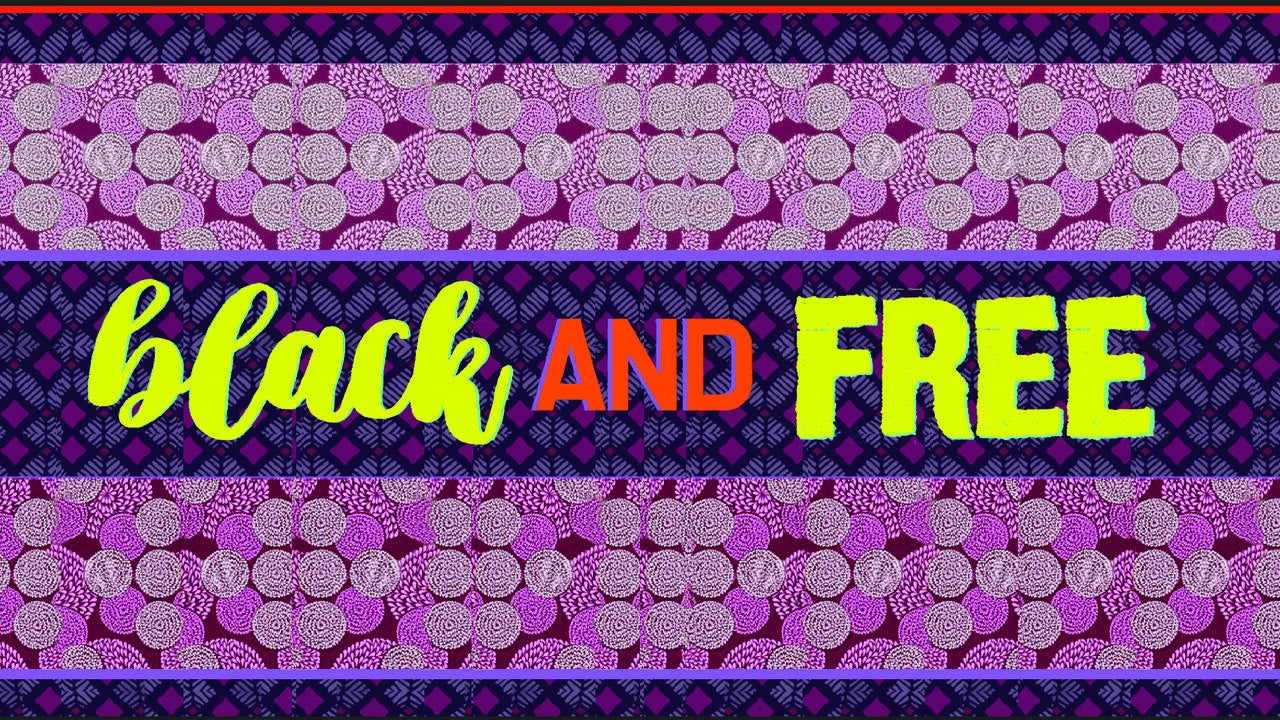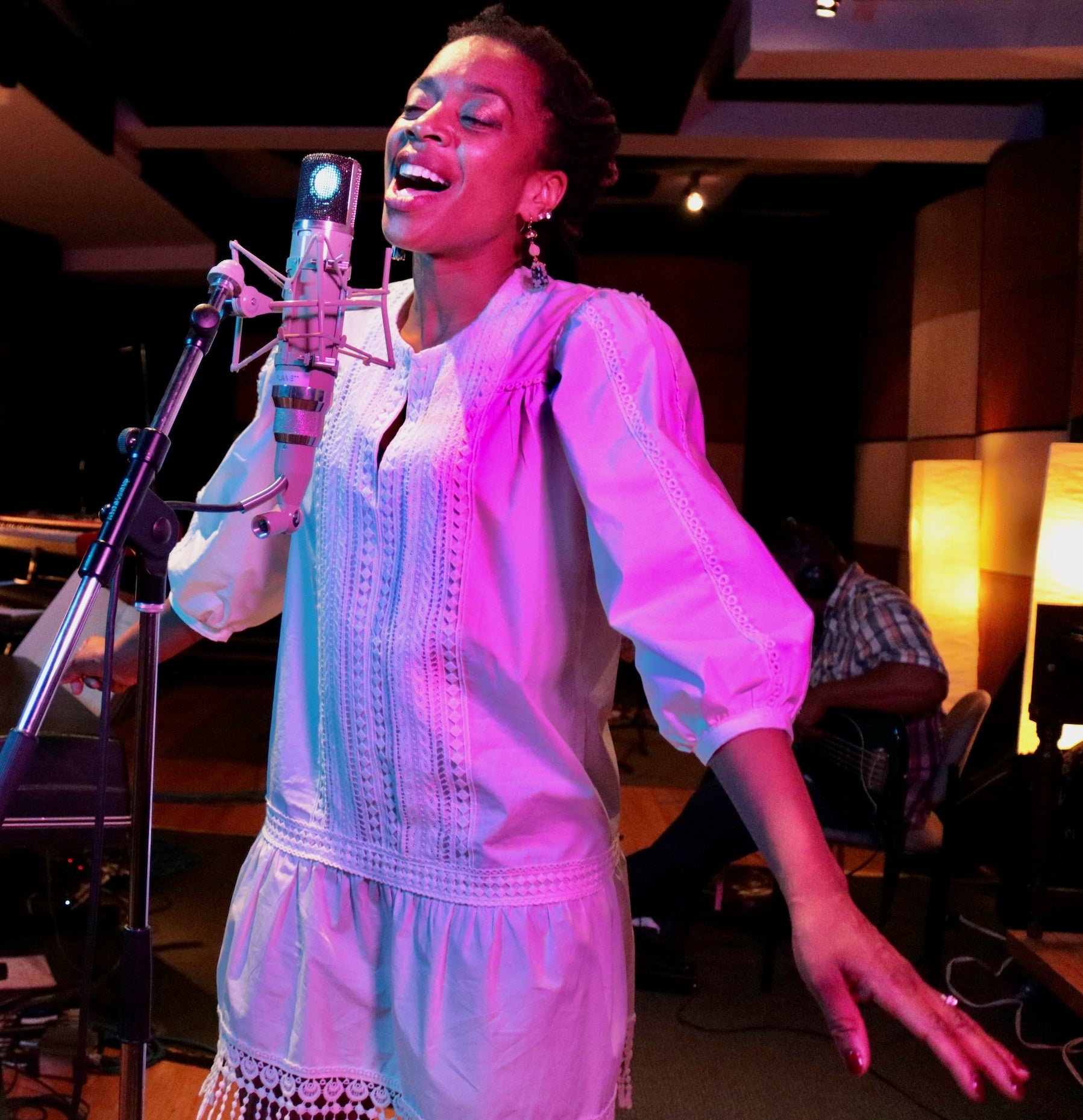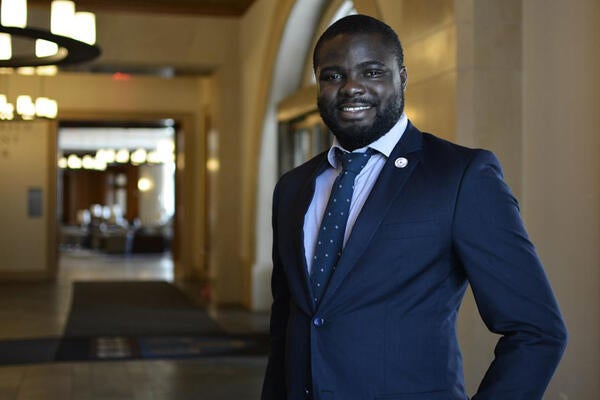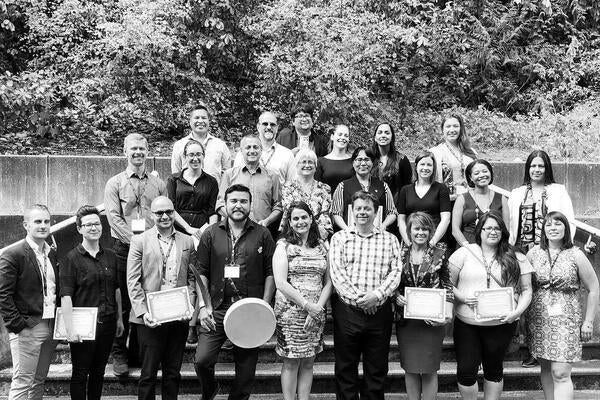
Being Black And Free in the 21st century
Professor dedicates her art, research and teaching to understanding Black freedom

Professor dedicates her art, research and teaching to understanding Black freedom
By Claire Francis Faculty of Arts“I think moving through this world is an expression of freedom because Black people are insistent on being here, on taking up space,” says Dr. Naila Keleta-Mae. “Our very being, the conversations we have, the ways in which we try to use our talents and time to care for one another — those are all expressions of Black freedom.”
Keleta-Mae’s research and teaching in Waterloo’s Theatre and Performance program (Department of Communication Arts) centres on notions of blackness and freedom as expressed through art and performance. A few years ago, she attracted media coverage for teaching a course on gender and performance centered on Beyoncé. Indeed, much of her work emphasizes Black women’s cultural production, including music, videos, performances, plays and poetry.
In 2017 Keleta-Mae began her Black And Free Research-Creation project that is now funded by the Social Sciences and Humanities Research Council, the Canada Council for the Arts, and the University of Waterloo. As both a scholar and artist she examines “what Black expressive cultures in North America and the Caribbean reveal about what it means to be Black and free in the 21st century.” She shares her work in a myriad of ways including in academic journals, on social media as well as op-eds in publications such as the Globe and Mail and Noisey. “My research and art can also be found in peer-reviewed books, streaming on music platforms and in poetry performances.”
Keleta-Mae reveals that inspiration for the project came during a spontaneous moment around her 40th birthday: “I'd been thinking a lot about what I wanted to spend my time and energy doing. I was posting [on Twitter] about blackness and freedom … and I think I said that I just wanted to spend the rest of my career and working, living days with blackness and freedom as my focus.”
 Now with an album, a poem, a play excerpt, a book chapter and articles on Black girlhood, Black women in Canadian theatre, and Black theatre in Zimbabwe all published under the Black And Free project, Keleta-Mae remains very conscious of the ways in which her art and research intersect. “Art comes first for me. It’s my vocation and so, I'm grateful for the ways in which the research is informing my art.” Supporting all angles of her work, from artistic to academic, are a host of innovative Black writers, thinkers and creators — from Audre Lorde, Katherine McKittrick and Donna P Hope to Christina Sharpe, Lorena Gale, Beryl West and of course, Beyoncé.
Now with an album, a poem, a play excerpt, a book chapter and articles on Black girlhood, Black women in Canadian theatre, and Black theatre in Zimbabwe all published under the Black And Free project, Keleta-Mae remains very conscious of the ways in which her art and research intersect. “Art comes first for me. It’s my vocation and so, I'm grateful for the ways in which the research is informing my art.” Supporting all angles of her work, from artistic to academic, are a host of innovative Black writers, thinkers and creators — from Audre Lorde, Katherine McKittrick and Donna P Hope to Christina Sharpe, Lorena Gale, Beryl West and of course, Beyoncé.
In another project branch, Keleta-Mae developed and teaches an Arts First undergraduate class called Black And Free that guides students through an examination of “how Black people have expressed their freedom in North America even in the midst of the violent institutionalized anti-Black racism that has plagued the continent for centuries.”
In late January, she was slated to offer a glimpse into her work through the performance of Black and Free: Research, Art, and Conversation via Facebook Live. However, due to technical difficulties, her American Sign Language (ASL) interpreter couldn’t appear onscreen.
Rejecting the old adage, the show must go on, Keleta-Mae immediately announced that her broadcast would be postponed until the ASL interpreter could be properly included.
In the weeks since that evening, Keleta-Mae remains deeply aware of the impact of her position. She sees her role as an educator as one who serves the public, “and that service includes putting together [our materials] and presenting it in ways that we have already learned that accessibility requires us to.” She continues, “If I am having this conversation about blackness and freedom but an entire demographic of Black people can't participate in that conversation, then I've failed before I've even started.”
Black freedom isn’t an abstract phenomenon, says Keleta-Mae. Away from the stage or classroom, the details of Black people’s lives demonstrate what’s possible — and regardless of our current crises, she remains hopeful.
“I want to believe that this is the moment. That we could seize obvious ways in which our imagination has had to stretch to meet this reality of being in a global pandemic. That we could have our imagination stretch and create a reality where white supremacy is over, and Black people are free.
“I think part of what that means for people who aren’t Black, and who care about this, is asking themselves questions like, 'What would my community, country and world look like if we really addressed concerns that Black people have raised for centuries? And what can I do to make that happen?'”
Keleta-Mae continues to reflect on what our current circumstance has revealed about humanity’s potential. “What this moment makes me think of, as someone who is committed to, dreams of and imagines Black people being free from anti-blackness in this lifetime is that we can imagine our world anew and do everything necessary to make it so. That we can live this long-overdue reality in our lifetime. That we can make all the necessary changes.”
Freedom is possible. What’s needed is a collective will to strive towards it.
Images: Banner designed by Sahra Soudi and Syrus Marcus Ware for the Black And Free Research-Creation Project; Keleta-Mae recording Fire Woman (2020), photo by Danny Girl.
In celebration of Black History Month, the President's Anti-racism Taskforce (PART) is hosting "Rooted in History: A Celebration of Black History as Canadian History." Register now for an afternoon of performance, a keynote address and panel discussion from some of our most formidable thinkers in Canada and those trailblazers making history right here at Waterloo.

Read more
Iyinoluwa “E” Aboyeji is turning Africa’s biggest challenges into global business opportunities

Read more
Savanah Seaton wants to help employers create workplaces where Indigenous employees can feel a sense of belonging and fully contribute their untapped knowledge, skills and abilities.

Read more
Waterloo professor hopes conversations about race will eliminate racial misunderstandings.
The University of Waterloo acknowledges that much of our work takes place on the traditional territory of the Neutral, Anishinaabeg and Haudenosaunee peoples. Our main campus is situated on the Haldimand Tract, the land granted to the Six Nations that includes six miles on each side of the Grand River. Our active work toward reconciliation takes place across our campuses through research, learning, teaching, and community building, and is co-ordinated within the Office of Indigenous Relations.